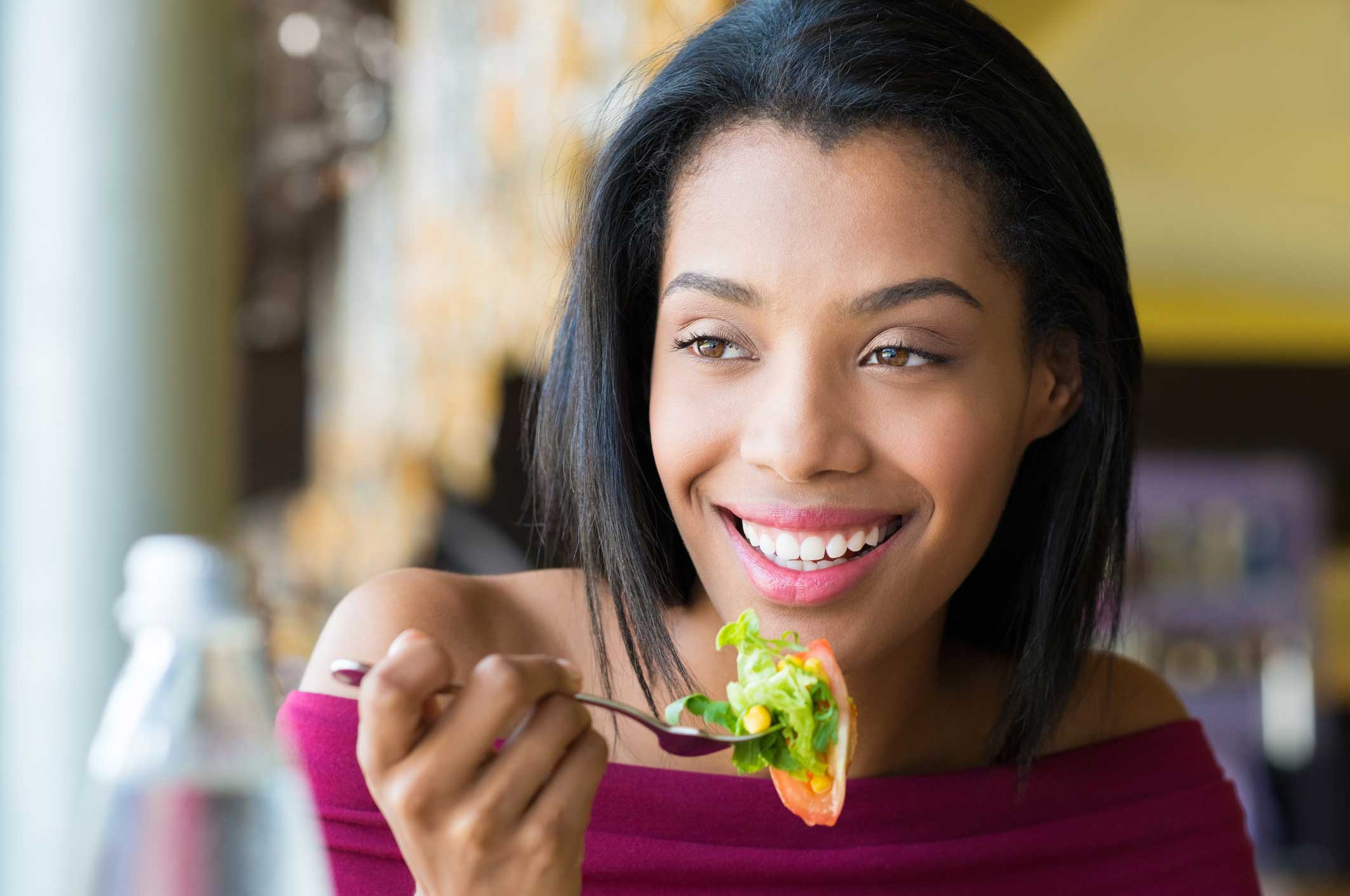<< Back
A Dietitian’s Tips to Help You Through COVID-19 Isolation

March 20, 2020
 Mary Noon
Mary Noon
As we practice social distancing to prevent the spread of COVID-19 and minimize trips to the supermarket, here are a few points to keep in mind when considering our nutrition status and that of our family.
No one food or supplement will protect you from getting the virus — no matter what you may have read online — even though healthy eating can support your immune system.
Food is nourishment, so plan to eat three meals a day along with one to two snacks. Eating from all food groups is encouraged.
Eat what is on hand. Do not stress that you have no lettuce for your salad. Instead, chop whatever raw vegetables you have like carrots, cabbage, peppers and onions for a base. No fresh vegetables or fruits? Frozen and canned fruits and vegetables are healthy choices. We know stress does negatively affect our immune system.
Be creative with your meals. Think how you can repurpose leftovers or get multiple meals from one item like a roast chicken for dinner, followed by chicken salad for lunch or chicken tacos.
Involve the whole family to get the job done. Kids can set the table and wash fruits and vegetables. Teens can make yogurt parfaits and smoothies. Everyone can eat together at the table without TV’s and phones on.
Shop efficiently with your health in mind by buying foods from all food groups.
Shopping List
Fruits and Vegetables
- Frozen vegetables like broccoli and spinach can be added to pastas, omelets and flatbreads.
- Frozen fruits can be used for smoothies or added to cereals and cottage cheese.
- Hardy fresh vegetables like winter squashes, onions, beets, potatoes which will last for greater lengths of time. Hardy greens will also last longer think kale, spinach, Swiss chard and shredded cabbage for salads and meal additions.
- Fruits that last longer include apples, pears and citrus fruits.
- Dried fruit to add to salads, pilafs and yogurt or for snacking.
Protein Foods
- Dried beans, peas and lentils for fiber, protein, vitamins and minerals. Canned legumes are convenient but try to select those labeled lower in sodium or rinse a few times. Consider making bean burritos, lentil and vegetable soup or falafel.
- Canned tuna, sardines, salmon and canned chicken for salads and pasta dishes.
- Nuts and seeds to add to homemade trail mix.
- Nut butters and sunflower butter.
- Eggs.
- Milk and yogurt, but pick cow or soy for the most protein.
Grains
- Oatmeal is versatile for breakfast or parfaits as well as a stand-in for breadcrumbs in meatloaf.
- Cold cereal with less added sugars is great for trail mix recipes.
- Popcorn is a whole grain. Try buying kernels to pop.
- Pasta comes in many varieties but avoid buying those with sauces because of their high sodium content.
- Brown rice, quinoa, bulgur, couscous work well in grain bowls.
- Corn tortillas last a long time.
- Pizza crust can unleash your imagination with a variety of toppings.
Extras
- Garlic, onions, lemon juice for seasoning your food.
- Spice or herb blend without added salt.
- Lower-sodium broth.
- Vegetable oil like olive or canola and vinegar.
Lastly, a word about sweets. Try to keep sweets limited, but they can be a pleasant treat. Just don’t make it all about the cake or the cookies. Eat fruit with a few cookies. Try less ice cream with banana slices or consider adding a handful of chocolate chips in the trail mix.
Mary Noon is a registered dietitian and nutritionist at Hartford Hospital.
Click here to visit the Hartford HealthCare Medical Group.
Not feeling well? Call your healthcare provider for guidance and try to avoid going directly to an emergency department or urgent care center, as this could increase the chances of the disease spreading.
Click here to schedule a virtual visit with a Hartford HealthCare-GoHealth Urgent care doctor.
Stay with Hartford HealthCare for everything you need to know about the coronavirus threat. Click here for information updated daily.
Questions? Call our 24-hour hotline (860.972.8100 or, toll-free, 833.621.0600).
Get text alerts by texting 31996 with COVID19 in the message field.